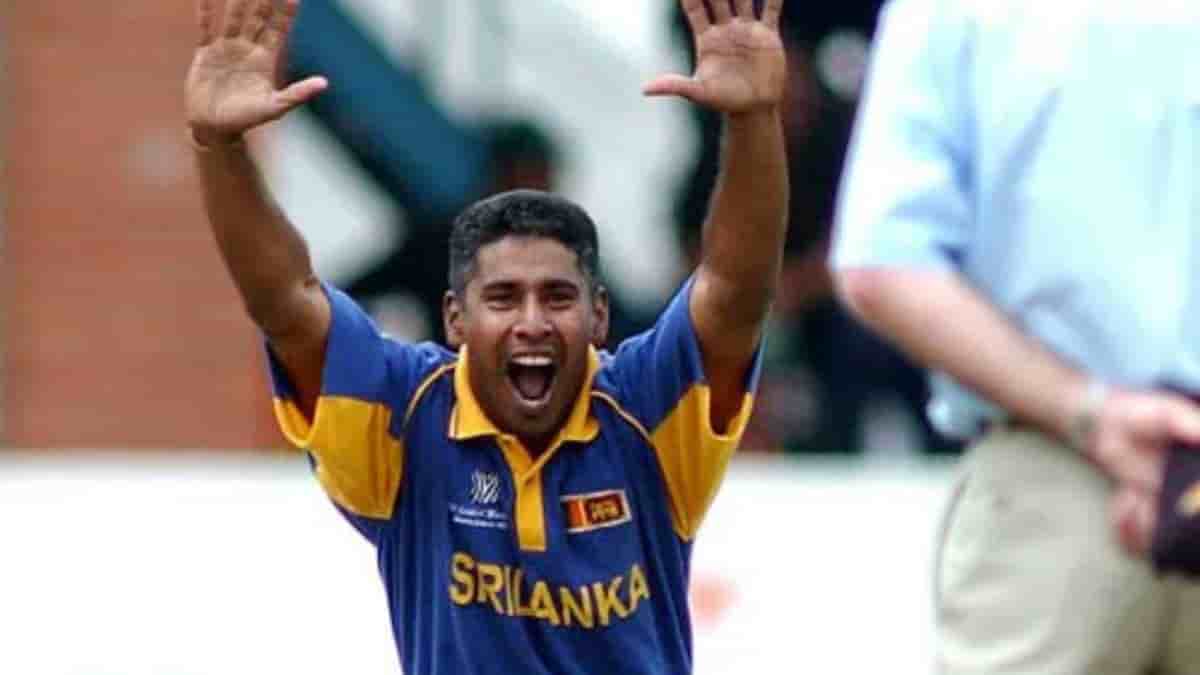 Source: ddsports/Twitter
Source: ddsports/Twitter
Security is a major consideration in all aspects of life. And when security concerns endanger a person’s life, decisive steps must be taken to assure maximum safety.
The continuing controversy between the Indian and Pakistani cricket teams about not accessing one other’s land is due to security concerns. Both countries and governments are concerned about the safety of the players, thus they do not play in each other’s land.
Despite New Delhi’s highest security guarantee, Pakistan will have to travel to India, and it will be up to the Pakistan government in Islamabad to grant NOC to their national side for participation in the next showcase event.
However, if Pakistan withdraws from the World Cup or refuses to play in particular places due to security concerns,’ it will not be the first time this has happened in the tournament’s history.
The sole previous incidence cited will take us back to 1996, some 27 years ago. At the time, the ICC World Cup was held in the subcontinent, with India, Sri Lanka, and Pakistan hosting the event jointly.
What happened during the World Cup in 1996?
West Indies and Australia boycotted a match in Sri Lanka during the 1996 Cricket World Cup. They were both slated to play the Lankans in Colombo but decided not to due to “security concerns.”
As a result, Sri Lanka was given a walkover and the points from those matches were awarded without any action. The ICC also penalized both the West Indies and Australia for not participating.
Why did the West Indies and Australia refuse to compete in the 1996 World Cup in Sri Lanka?
The 1996 World Cup began on February 15, 1996. Australia and the West Indies were slated to play in Sri Lanka on the 17th and 25th of February, respectively.
However, on January 31, around two weeks before the start of the World Cup, a large bomb attack startled the Island country, which had been fighting a civil war for more than a decade at the time. A truck carrying explosives struck Colombo’s Central Bank. The vehicle, which was carrying 400 pounds of explosives, crashed into the bank.
Aside from the massive blasts, there were also exchanges of fire between militants and security troops. The blast is said to have killed 91 individuals and injured over 1,400 others, with over a hundred of them permanently losing their sight.
As a result, Sri Lanka’s security measures were called into question. Australia and the West Indies were concerned about similar incidences during their visit, which fueled their refusal to play in the country.
The points aided Sri Lanka’s progress to the semi-finals, where they defeated India in Kolkata after the match was called off owing to rowdy crowd behavior after the Men in Blue suffered a batting collapse in the run chase.
On March 17, 1996, the Lankan Lions faced Australia in the final at Gaddafi Stadium in Lahore, where Aravinda de Silva’s century helped the Arjuna Ranatunga-led side win their first ICC trophy.
Also Read: Cricket World Cup 2023: Pakistan reluctantly comes to India (cricfiles.com)
“Get more breaking news, cricket updates, fixtures, and trending news only on cricfiles.com. Follow us on Facebook or Twitter and Subscribe to our YouTube Channel today.”





